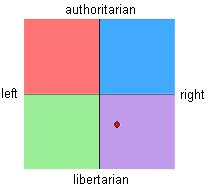One analysis shows NDP faces near wipeout at polls: Firm headed by ex-cabinet minister Bill Barlee looks at how trends will translate into seats, even with Glen Clark gone.
Vancouver Sun Column: Vaughn Palmer
VICTORIA - The New Democrats are facing a near wipeout in the next provincial election, according to a detailed analysis from a political consulting firm headed by former cabinet minister Bill Barlee.
He says his party risks falling below the number of seats -- four -- needed for official status in the legislature. Moreover, "a complete shutout is not an impossibility."
Mr. Barlee was a New Democratic Party member of the legislature from the southern Okanagan -- his upset victory in a 1988 byelection against the Bill Vander Zalm Socreds kicked off the NDP march to power -- and a cabinet minister in Mike Harcourt's government.
He was reluctant to endorse Glen Clark for leader, believing that he was too left-wing for the party's more populist supporters in the Interior. Not long before losing the 1996 election by a mere 27 votes, Mr. Barlee delivered the verdict to Mr. Clark that he had the potential to be "one of the best premiers in the history of B.C., or one of the worst."
The current analysis from Mr. Barlee's firm, Victoria-based Barlee, Geoghegan and Associates (BGA), shows the former minister to be leaning toward the latter alternative: "For the NDP the issue in the next election is first of all being able to win enough seats to be a recognized party in the legislature and secondly to try and strive for a strong enough result that the party has the ability to offer a credible opposition to the Gordon Campbell government. The first is achievable, while the second seems impossible in the current political climate."
But what sets the Barlee firm's analysis apart from the run-of-the-mill sniping among disaffected New Democrats is the detailed attempt to work out how current political trends would translate into seats in the legislature.
Provincewide opinion polls are of limited assistance in that regard -- witness the last election when the Liberals won a larger share of the vote but fewer seats than the New Democrats. Instead the BGA analysis, prepared and written by Bernard von Schulmann, tried to develop a realistic scenario based on regional and local voting patterns plus the expected expansion of the legislature to 79 seats from the current 75 before the next election.
He also assumed that the Liberals will not be able to pull more than 50 per cent of the popular vote, notwithstanding recent polls that show them on the threshold of 60 per cent. He figured that Reform B.C., though in decline, will remain a factor in some rural Interior and northern constituencies. And he anticipated that the NDP will recover somewhat from its current dismal standings in the popular vote (about 18 per cent) by engineering a change of leaders, with Mr. Clark being replaced by one of three cabinet ministers -- Gordon Wilson, Ujjal Dosanjh or Joy MacPhail.
Applying those assumptions, he estimated the popular vote at Liberals 50 per cent, NDP 28, Reform 17 and Green five. Then, working through his scenario on a riding-by-riding, basis, he concluded that the Liberals would stand to win at least 65 seats and maybe as many as 69.
The New Democrats would win no more than eight seats and possibly as few as four. He gave Reform five to seven seats, and the Greens an outside chance of winning one seat in the southern Interior.
"The huge drop in the number of seats won by the NDP is definite, because the party holds very few seats by a majority [of the popular vote]," the BGA analysis says. Indeed, it was only by boosting the party's popular vote well beyond the current range projected in the opinion polls that the analysis was able to produce any good bets for the NDP -- the four seats held by cabinet ministers Dan Miller (North Coast), Gordon Wilson (Powell River-Sunshine Coast), Jenny Kwan (Vancouver-Mount Pleasant) and Moe Sihota (Esquimalt-Metchosin.)
If that weren't gloomy enough for the New Democrats, Mr. Barlee's firm concludes with a more chilling scenario for members of the governing party, namely a legislature where the Liberals form the government and Reform the official Opposition. Disputing the conventional wisdom that Reform B.C. poses a threat only to Liberals, the report points out that the upstart party's best chances of a breakthrough are in a half-dozen northern and rural seats that are held by the New Democrats.
"Unless something miraculous happens between now and the next provincial election, the only likely result will be a Liberal landslide," the report says. "It could also usher in an era of B.C. politics being a debate between the centre-right and the far right, with the voice of the left being silenced."
e-mail: vpalmer@direct.ca
Saturday, May 01, 1999
Subscribe to:
Comments (Atom)




